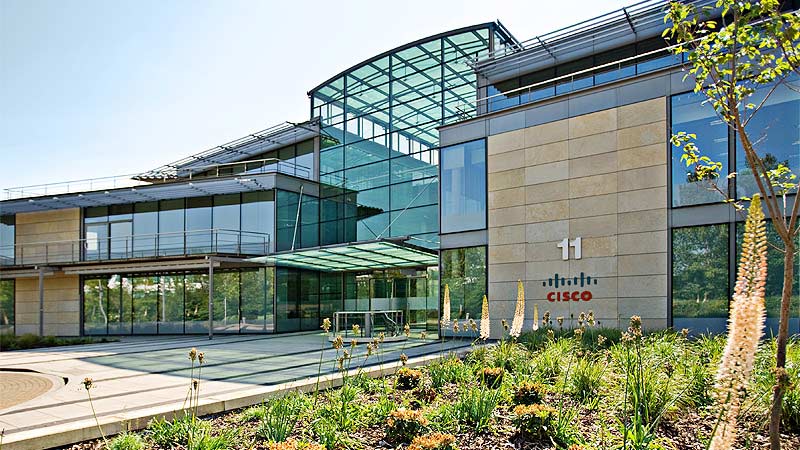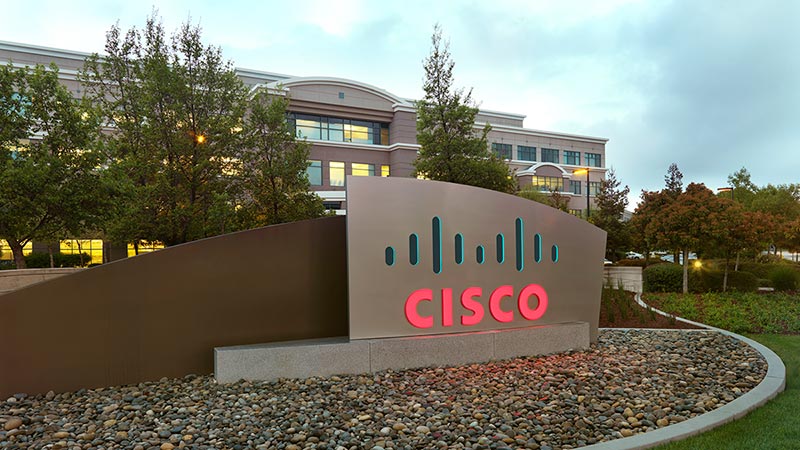JOHANNESBURG, South Africa, September 4, 2007 - As part of its vision of participating in the socio-economic transformation of emerging markets around the globe, Cisco® today announced a wide-ranging Black Economic Empowerment (BEE) strategy for its South African operations which is closely aligned with the economic transformation goals of the government of South Africa.

Cisco's BEE initiative is designed to support the meaningful participation of Black South Africans (African, Indian and Coloured persons) in the economic success of the company through the sale of equity to a broad-based consortium of Black South African investors. The grouping will include an external investment partner, a trust representing Cisco's Black South African employees, and a newly created education trust. The transaction is subject to customary closing conditions, including regulatory approvals, and assuming that it is completed as anticipated:
- The external investment partner and the employee and education trusts will receive long-term share participation rights, represented by shares in parent company Cisco Systems Inc., with a value equal to a 25.1 per cent stake in a newly created services organisation that will support the needs of major South African organisations.
- The employee and education trusts will receive share participation rights with a value equal to a 25.1 per cent stake in Cisco Capital South Africa, which offers financing to both Cisco's strategic customers and its broader customer base.
- Lastly, the employee and education trusts will receive share participation rights, with a value equal to a 20 per cent stake in Cisco's local sales and marketing organisation, which supports Cisco's broad customer base in South Africa. Cisco products are already sold to this customer base through system integrators that include a BEE-empowered partner channel.
Black South African directors now make up 60 per cent of the local board of Cisco South Africa, and 60 and 62 per cent of its senior and junior management, respectively, consist of previously disadvantaged individuals. Female employees today account for approximately 30 per cent of the organisation.
"Unburdened by legacy technologies and entrenched ways of doing business, developing nations have an unprecedented opportunity to benefit the billions of people living in these geographies," commented Paul Mountford, president of emerging markets for Cisco. "We believe that today's transaction will underpin our efforts to support the South African government in the continued transformation of the country's economy and, as a result, is in the best interests of all our employees, partners and shareholders in helping to grow our business."
Lereko Joins Initiative
Following a detailed selection process, Cisco is today announcing that Lereko Investments Pty Ltd will participate in the empowerment initiative by taking the lead equity stake with respect to the services organisation. Lereko is represented by Valli Moosa (executive chairman), Popo Molefe (CEO), and Lulu Gwagwa (executive director). The selection of Lereko was made based on a common vision of BEE, cultural fit with Cisco, and a shared vision for transforming the information and communications technology sector in South Africa. Following the completion of the transaction, Lereko will hold share participation rights with a value representing 20 per cent of the services organisation, with the employee and education trusts holding rights representing the remaining 5.1 per cent. A Lereko representative will also be appointed to the advisory board of Cisco Services South Africa.
"Cisco's support for the BEE initiative is a continuing step along the path to help create an information based society that can leapfrog other nations," commented Mark de Simone, VP Middle East and Africa for Cisco. "South Africa truly embodies the opportunity for country transformation that Cisco is working to foster through collaboration with African governments."
Following the completion of the transaction, the investors will have voting rights in the local entity and will receive the right to restricted shares of the common stock of Cisco Systems, Inc. This asset will be of equivalent value to the agreed stake in the local entity, and provides access not only to the value of Cisco's South African operations but also to the value of Cisco's businesses on a global basis. This holding may not be disposed of prior to 2017 and is linked to the performance of Cisco's business.
"Our motivation for transferring equity in our operations is simple: Cisco believes participating in South Africa's monumental and transformational Black Economic Empowerment (BEE) programme is not only a duty but a once-in-a-lifetime opportunity as well," said Steve Midgley, general manager, Cisco South Africa. "As it pursues new business opportunities in emerging markets, Cisco is discovering that the birthplace of man and the cradle of civilisation are, indeed, full of potential, just as they were thousands of years ago. The leaps that emerging nations, including South Africa, make now may very well benefit people there for decades if not centuries to come."
Education Initiatives
Cisco is also announcing a "Cisco Scholars" programme that will be one of several beneficiaries of the education trust. This programme will provide scholarships for high-potential disadvantaged Black South African students who are graduating from high school to attend the African Leadership Academy.
The announcement today is one of several initiatives Cisco is undertaking to support the objectives of the government. It also continues to build on the achievements of the company to date in delivering on the BEE requirements in respect to areas such as employment equity, skills transfer, enterprise development and corporate social investment.
Cisco has also announced that it will intensify its local Cisco Networking Academy efforts, which aim to address skills development requirements in South Africa, and which recently received a commendation from the minister of education. Over the coming year Cisco aims to add an additional 18 local academies, up from the current 52.
In order to further contribute to skills development, the local creation of intellectual property, and employment creation, Cisco has also submitted a proposal to the Department of Trade and Industry of nearly $15M of direct foreign investment and an ongoing maintenance investment to the DTI, around which negotiations are progressing very well, and the details of which will be released shortly as agreement is reached.






